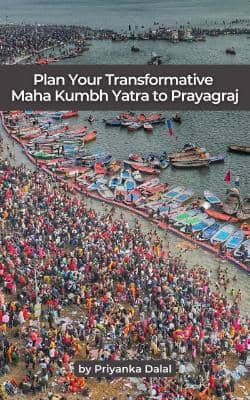“I have been thinking / contemplating cycling Europe and looking for any pointers. I came across your travelogue during my search and found out that it can be done.”
Received an email with a bunch of questions from this person looking to cycle tour in Europe. One of the Qs is about camping,
Q: Free camping or wild camping in Europe might not be the common norm and paid camping is quite costly. So, how should I manage to keep it at the lowest possible?
Free camping or wild camping as the name suggests, means you pick a wild piece of land and camp there for the night. AFAIK in most Schengen countries this isn’t technically allowed. Or even if it is, then there are a lot of caveats about what kind of land you can wild camp on. One would have to research into each countries rules to find out the exact legality details. I haven’t done this yet. In some of the Scandinavian countries, I think it is more accepted and may even be legal, so if someone is keen on wild camping, I suggest to check the laws of Norway and Finland on this.
Camping in Europe is costly?
I wouldn’t call camping costly in Europe. It really depends on where you are cycling and which campground you choose. Typically, I spent about 10-12 Euros as my camping costs per night. This was the typical rates I found in Germany & Denmark. It is for one person with one tent and one cycle.
This is how much I spend in India for short term stay, though I would get a room and private bathroom in comparison.
So, I don’t consider it expensive. There are much more expensive camping options in premium spots or in premium campgrounds. These can be avoided.
Facilities
These campgrounds provide many facilities like a kitchen area where you can cook food. Typically, they have a stove or cooking unit and some vessels. These are free to use. So you can pick up fresh ingredients from the super market and cook or bring ready to eat packs even from India 🙂 This would reduce your costs on food significantly.
They also have a shower and bathroom facility. Though hot water showers might be charged at a Euro for 2 minutes or some such.
Apart from these facilities, the campground can be a good place to meet other travellers, exchange route tips or learn about camping & cycle touring. We Indians usually don’t have native experience with these activities, because it’s not really a family culture, so it’s good to catch up with the pros.
Free Camping: A Legal & Friendly Way
There is one way that I can suggest for free camping – you approach the locals and request them to let you camp in their courtyard.
I know a lot of cycle tourers who do this. And it isn’t just to keep the camping costs low. There are some other reasons to opt for this approach too,
– it allows us to cycle as much as we want without having to necessarily stop at a campsite. We can even deviate from our planned routes and not bother searching out campsites wherever we go.
– it lets us interact with local people. I think for a lot of cyclists this is a serious reason to not head to a campground but instead connect with the locals
My friend Zilong Wang went on a cycling pilgrimage. And one of the key elements of this pilgrimage was to not spend on the stay but rather depend on the people like a monk or travelling pilgrim would do.
It’s also possible to make use of sites like couchsurfing and warmshowers to find hosts in advance willing to accommodate you for free.
Free Camping might be easier in Australia
I have some experience of Australia and from what I understand, campsites there tend to be wilder and more natural. They also often have open public spots for camping. These are small areas, typically near the roads, but also deep within national parks. They are designated free for camping. They may have a small picnic table or two. And maybe a small bathroom somewhere nearby. Don’t expect the facilities as a paid site.
I had passed by one such spot when I was cycling there and it was a very green and appealing space. But I personally, at that time, preferred a little bit more equipped campground in the middle of a small town – so I have access to people and materials. To camp on one’s own in the wild, we would need to be much better equipped.
Apart from Europe and Australia, there are still a lot of countries in the world. Each would have their own camping norms and facilities. These can be researched separately, but if you plan to request locals for a bit of space to camp, then that is an approach that can be used pretty much anywhere and everywhere. And a lot of the RTW cyclists seem to do this all over the world. 🙂
Have you been camping? Got any more ideas for keeping it low cost? Or just want to share your experiences? Let me know in comments 🙂




0 Comments